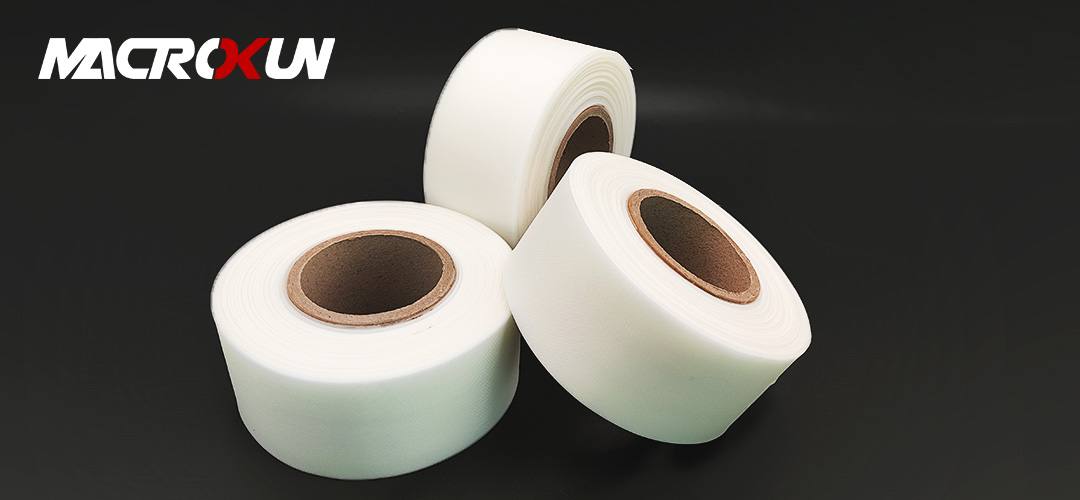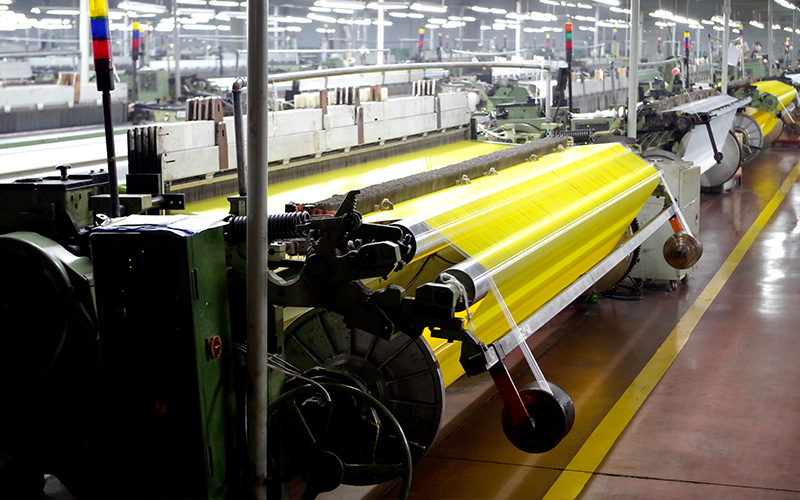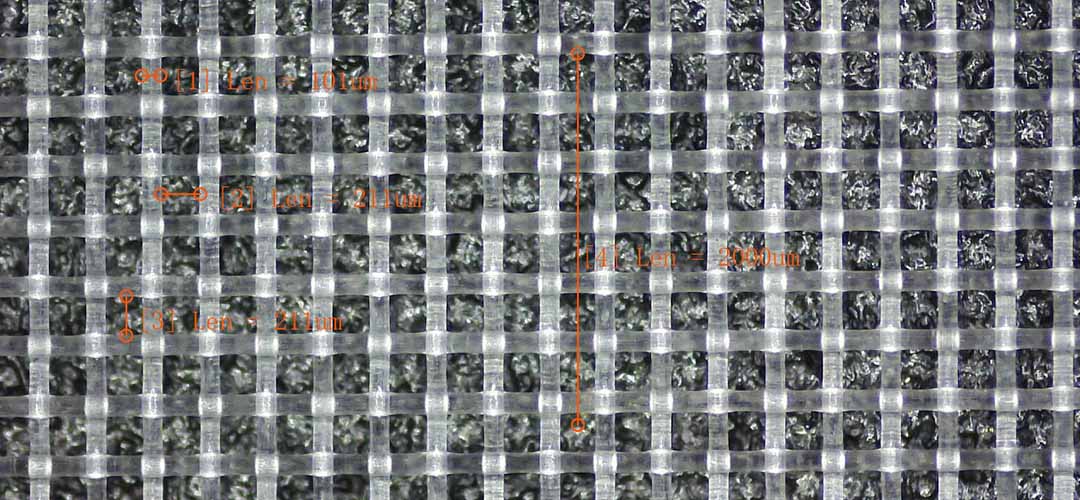When it comes to selecting the best screen material for your project needs, nylon screens are a popular choice for a variety of applications. Nylon screens offer a number of benefits that make them ideal for use in a wide range of industries, from food processing to pharmaceuticals to electronics manufacturing. In this article, we will explore the advantages of nylon screens and how they can be used in different applications.
| Class | Mesh Size (/cm) |
Mesh Size (/inch) |
Thread Dia (um) |
Mesh Opening (um) |
Thickness (um) |
Net Weight (g/m2) |
| NL4/1950 | 4 | 10 | 550 | 1950 | 1100 | 307 |
| NL5/1500 | 5 | 13 | 500 | 1500 | 1000 | 318 |
| NL6/1267 | 6 | 15 | 400 | 1267 | 800 | 244 |
| NL7/1079 | 7 | 18 | 350 | 1079 | 700 | 218 |
| NL8/900 | 8 | 20 | 350 | 900 | 700 | 249 |
| NL9/861 | 9 | 23 | 250 | 861 | 500 | 143 |
| NL9/811 | 9 | 23 | 300 | 811 | 600 | 206 |
| NL10/750 | 10 | 25 | 250 | 750 | 500 | 159 |
| NL10/700 | 10 | 25 | 300 | 700 | 600 | 229 |
| NL12/583 | 12 | 30 | 250 | 583 | 500 | 191 |
| NL12/533 | 12 | 30 | 300 | 533 | 600 | 274 |
| NL14/514 | 14 | 36 | 200 | 514 | 340 | 142 |
| NL16/425 | 16 | 40 | 200 | 425 | 340 | 160 |
| NL20/350 | 20 | 50 | 150 | 350 | 255 | 113 |
| NL20/300 | 20 | 50 | 200 | 300 | 340 | 200 |
| NL24/267 | 24 | 60 | 150 | 267 | 255 | 135 |
| NL28/237 | 28 | 70 | 120 | 237 | 204 | 101 |
| NL30/213 | 30 | 76 | 120 | 213 | 204 | 110 |
| NL32/213 | 32 | 80 | 100 | 213 | 170 | 80 |
| NL36/178 | 36 | 90 | 100 | 178 | 170 | 90 |
| NL40/150 | 40 | 100 | 100 | 150 | 170 | 100 |
| NL43/153 | 43 | 110 | 80 | 153 | 136 | 70 |
| NL48/128 | 48 | 120 | 80 | 128 | 136 | 77 |
| NL56/119 | 56 | 140 | 60 | 119 | 102 | 50 |
| NL64/96 | 64 | 160 | 60 | 96 | 102 | 58 |
| NL72/89 | 72 | 180 | 50 | 89 | 85 | 45 |
| NL80/75 | 80 | 200 | 50 | 75 | 85 | 50 |
| NL100/57 | 100 | 250 | 43 | 57 | 73 | 46 |
| NL110/48 | 110 | 280 | 43 | 48 | 73 | 52 |
| NL120/48 | 120 | 300 | 35 | 48 | 60 | 37 |
| NL120/40 | 120 | 300 | 43 | 40 | 73 | 55 |
| NL130/42 | 130 | 330 | 35 | 42 | 60 | 40 |
| NL130/34 | 130 | 330 | 43 | 34 | 73 | 61 |
| NL140/36 | 140 | 350 | 35 | 36 | 60 | 43 |
| NL157/25 | 157 | 400 | 43 | 25 | 73 | 74 |
| NL180/20 | 180 | 450 | 39 | 20 | 66 | 68 |
| NL200/15 | 200 | 500 | 39 | 15 | 66 | 76 |
| NL220/10 | 220 | 550 | 39 | 10 | 66 | 84 |
| NL240/5 | 240 | 600 | 39 | 5 | 66 | 91 |
One of the key benefits of nylon screens is their durability. Nylon is a strong and resilient material that can withstand high temperatures and harsh chemicals, making it ideal for use in demanding environments. This durability ensures that nylon screens can withstand the rigors of daily use without breaking or wearing down, making them a cost-effective option for long-term use.

In addition to their durability, nylon screens are also highly resistant to abrasion and corrosion. This makes them ideal for use in industries where screens are exposed to abrasive materials or corrosive substances, such as in food processing or chemical manufacturing. Nylon screens can withstand the wear and tear of these environments, ensuring that they remain effective and efficient over time.
Another advantage of nylon screens is their flexibility. Nylon is a flexible material that can be easily molded and shaped to fit a variety of screen sizes and shapes. This flexibility makes nylon screens versatile and adaptable to different applications, allowing them to be used in a wide range of industries and settings.

Nylon screens are also easy to clean and maintain, making them a practical choice for industries where cleanliness is essential. Nylon screens can be easily washed and sanitized, ensuring that they remain free of contaminants and bacteria. This makes them ideal for use in industries such as food processing and pharmaceuticals, where hygiene is of utmost importance.
Furthermore, nylon screens are lightweight and easy to handle, making them convenient to work with. Their lightweight construction makes them easy to transport and install, saving time and effort during the screening process. This makes nylon screens a practical choice for industries where efficiency and productivity are key considerations.
In conclusion, nylon screens offer a number of benefits that make them an ideal choice for a wide range of applications. Their durability, resistance to abrasion and corrosion, flexibility, ease of cleaning, and lightweight construction make them a practical and cost-effective option for industries where screening is required. Whether you are in the food processing, pharmaceutical, or electronics manufacturing industry, nylon screens can provide the reliability and performance you need for your project needs. Consider using nylon screens for your next screening project and experience the many advantages they have to offer.
When it comes to selecting the best nylon screen for your project needs, there are several factors to consider. Nylon screens are commonly used in a variety of industries, including printing, filtration, and agriculture. Choosing the right nylon screen can make a significant difference in the success of your project. In this article, we will discuss some key factors to consider when selecting a nylon screen.
One of the most important factors to consider when choosing a nylon screen is the mesh size. The mesh size refers to the number of openings per inch in the screen. The mesh size you choose will depend on the application of the screen. For example, if you are using the nylon screen for printing, you will want a finer mesh size to achieve a higher level of detail in your prints. On the other hand, if you are using the screen for filtration, you may need a coarser mesh size to allow for better flow of liquids or gases.
Another important factor to consider when selecting a nylon screen is the thread diameter. The thread diameter refers to the thickness of the threads used to weave the screen. Thicker threads are more durable and can withstand higher pressures and temperatures, making them ideal for heavy-duty applications. However, thinner threads can provide a finer mesh size, which may be necessary for certain applications. It is important to consider the thread diameter in conjunction with the mesh size to ensure that the screen meets your specific requirements.
In addition to mesh size and thread diameter, it is also important to consider the material of the nylon screen. Nylon screens are typically made from either nylon 6 or nylon 6,6. Nylon 6 is more flexible and has a higher elongation at break, making it ideal for applications that require some degree of flexibility. On the other hand, nylon 6,6 is more rigid and has a higher tensile strength, making it suitable for applications that require greater durability and resistance to wear and tear.
When selecting a nylon screen, it is also important to consider the weave pattern. Nylon screens are available in a variety of weave patterns, including plain weave, twill weave, and Dutch weave. Each weave pattern has its own unique characteristics and is suitable for different applications. For example, plain weave screens are commonly used for general-purpose applications, while twill weave screens are ideal for applications that require increased strength and stability. Dutch weave screens are often used for filtration applications, as they provide a high level of particle retention.
Finally, it is important to consider the finish of the nylon screen. Nylon screens are available in a variety of finishes, including plain, heat-set, and coated. The finish of the screen can affect its performance and durability. For example, a heat-set finish can improve the dimensional stability of the screen, while a coated finish can provide additional protection against abrasion and chemicals.
In conclusion, selecting the best nylon screen for your project needs requires careful consideration of several factors, including mesh size, thread diameter, material, weave pattern, and finish. By taking these factors into account, you can ensure that you choose a nylon screen that meets your specific requirements and delivers optimal performance for your project.
When it comes to selecting the best nylon screen for your project needs, it’s important to understand the different types of nylon screens available in the market. Nylon screens are commonly used in a variety of industries, including agriculture, manufacturing, and construction, due to their durability and versatility. By familiarizing yourself with the various types of nylon screens, you can make an informed decision on which one is best suited for your specific project requirements.
One of the most common types of nylon screens is monofilament nylon. This type of screen is made from a single strand of nylon, which makes it strong and resistant to tearing. Monofilament nylon screens are often used in applications where high tensile strength is required, such as in the production of industrial filters or screen printing. These screens are available in a range of mesh sizes, allowing you to choose the right one for your specific needs.
Another type of nylon screen is multifilament nylon. Unlike monofilament nylon, multifilament nylon screens are made from multiple strands of nylon twisted together. This construction gives them added flexibility and allows for better ink flow in screen printing applications. Multifilament nylon screens are also known for their excellent abrasion resistance, making them ideal for use in harsh environments.
In addition to monofilament and multifilament nylon screens, there are also specialty nylon screens available in the market. These screens are designed for specific applications, such as UV-resistant screens for outdoor use or anti-static screens for electronic manufacturing. By understanding the unique properties of these specialty screens, you can choose the one that best meets your project requirements.
When selecting a nylon screen for your project, it’s important to consider the mesh size and weave pattern. The mesh size refers to the number of openings per inch in the screen, with smaller mesh sizes providing finer filtration and larger mesh sizes allowing for greater ink flow. The weave pattern, on the other hand, determines the strength and durability of the screen. Common weave patterns include plain weave, twill weave, and Dutch weave, each offering different levels of stability and filtration.
In addition to mesh size and weave pattern, you should also consider the thickness of the nylon screen. Thicker screens are more durable and resistant to tearing, making them ideal for heavy-duty applications. However, thicker screens may also reduce ink flow in screen printing applications, so it’s important to strike a balance between durability and functionality.
Ultimately, the best nylon screen for your project needs will depend on a variety of factors, including the application, environment, and budget. By understanding the different types of nylon screens available in the market and considering key factors such as mesh size, weave pattern, and thickness, you can make an informed decision on which screen is best suited for your specific requirements. Whether you’re in need of a durable industrial filter or a high-quality screen for screen printing, selecting the right nylon screen is essential for the success of your project.
When it comes to selecting the best nylon screen for your project needs, there are a few key factors to consider. Nylon screens are a popular choice for a variety of applications, including filtration, separation, and printing. They are known for their durability, flexibility, and resistance to chemicals and abrasion. However, not all nylon screens are created equal, and it’s important to choose the right one for your specific requirements.
One of the first things to consider when selecting a nylon screen is the mesh size. The mesh size refers to the number of openings per inch in the screen. A higher mesh count will result in a finer screen, which is ideal for applications that require a high level of precision, such as printing fine details or separating small particles. On the other hand, a lower mesh count will result in a coarser screen, which is better suited for applications that require a higher flow rate, such as filtration.
Another important factor to consider is the thread diameter of the nylon screen. The thread diameter refers to the thickness of the individual threads that make up the screen. Thicker threads are more durable and can withstand higher pressures and temperatures, making them ideal for heavy-duty applications. However, thinner threads are more flexible and can conform to irregular surfaces, making them suitable for applications that require a high level of flexibility.
In addition to mesh size and thread diameter, it’s also important to consider the weave pattern of the nylon screen. The weave pattern refers to the way in which the threads are interlaced to form the screen. There are several different weave patterns to choose from, including plain weave, twill weave, and Dutch weave. Each weave pattern has its own unique characteristics and is suited to different types of applications. For example, plain weave screens are ideal for general-purpose applications, while twill weave screens are better suited for applications that require a higher level of strength and durability.
Once you have selected the right nylon screen for your project needs, it’s important to take steps to maintain and extend its lifespan. Proper maintenance is essential to ensure that your nylon screen continues to perform at its best and lasts for as long as possible. One of the most important things you can do to maintain your nylon screen is to clean it regularly. Over time, dirt, debris, and other contaminants can build up on the screen, reducing its effectiveness and potentially causing damage. To clean your nylon screen, simply rinse it with water and a mild detergent, then allow it to air dry.

In addition to regular cleaning, it’s also important to handle your nylon screen with care. Avoid using sharp objects or excessive force when handling the screen, as this can cause tears or damage to the threads. Store your nylon screen in a cool, dry place away from direct sunlight and extreme temperatures to prevent degradation. If you notice any signs of wear or damage, such as tears, holes, or fraying threads, it’s important to replace the screen as soon as possible to prevent further damage.
By selecting the right nylon screen for your project needs and taking steps to maintain and extend its lifespan, you can ensure that your screen continues to perform at its best for years to come. With proper care and maintenance, your nylon screen can provide reliable and consistent performance for a wide range of applications.
Pre: How Nylon Plastic Mesh is Used in Agriculture, Filtration, and More
Next: Exploring the Durability and Versatility of Strong Nylon Netting

MACROKUN has established long-term and stable cooperative relations with many transportation companies such as China Post, DHL, FEDEX, USPS, UPS, etc. Of course, MACROKUN can also provide air and sea transportation. The powerful logistics system enables all MACROKUN'S Printing Mesh, Filter Mesh and Filter Bags and so on to be easily and efficiently transported to any place. For quotes and inquiries, please email our sales team.





